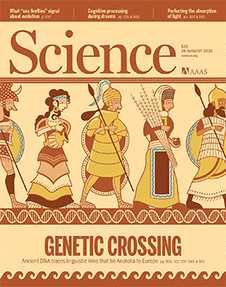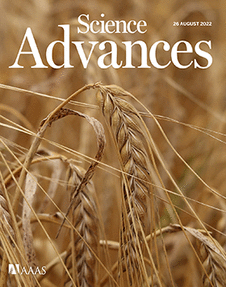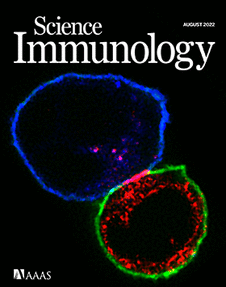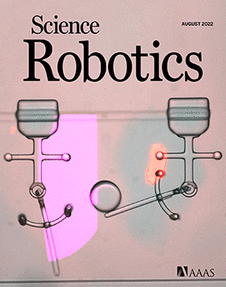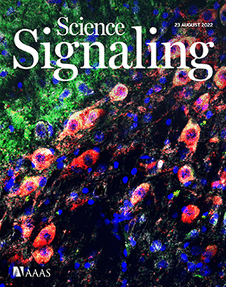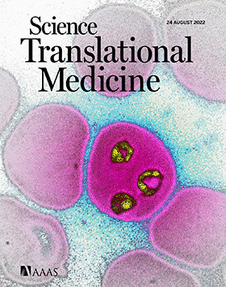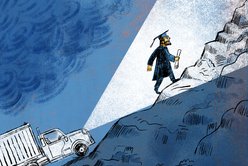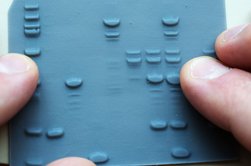How astrophysics helped me embrace my nonbinary gender identity—in all its complexity
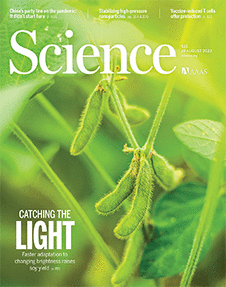
Growing up, I asked a lot of questions. Many of them foretold my future in astronomy: Why is the Sun yellow? Why do the constellations look like that? Why does Jupiter have a spot? My parents answered what they could, and bought me books to answer the rest. But my most frequent question, starting when I was about 5 years old, was why am I a girl? And for that, my parents had no answer. In fact, in the 1990s, in the foothills of the Appalachians, no one did. It was my first encounter with a question that has no simple answer.
It faded in and out of my consciousness until middle school, when puberty brought feelings of dismay and disgust. Every day meant performing femininity while feeling increasingly isolated from it.
On the academic front, things weren’t much better. In high school, I particularly hated freshman physics and its inflexible rules, which seemed to mirror the society I lived in. The same way we learned to expect a pendulum to swing, a block to slide down a slope, a ball to fall off a cliff, I felt I was expected to go to church, meet a man, marry young, and have kids. This seemingly inescapable trajectory left me depressed and numb to the world.
I went to college because I wanted out. I felt purposeless, hollow, void of meaning—but at the same time, standing at the crossroads to 1000 different futures. Like a particle atop a perfect sphere, I could have fallen in any direction. It was by pure chance that I wandered into a bookstore and saw Stephen Hawking’s The Grand Design on the front table. I cannot tell you what inspired me to pick up a book on cosmology. But I did, and in a few short minutes I had discovered a doorway into a new kind of physics—the kind of physics that doesn’t have all the answers, the kind of physics that disagrees with itself, the kind of physics that is messy and chaotic and, God forbid, fun. I changed my major to astrophysics the next week.
Over the following years, I learned about relativity, and how in the right circumstances time itself can slow. I learned about quantum mechanics, where anything can happen. Rules were no longer absolute. Things I had accepted as fact were really just approximations of unknowable truths.
- Kaitlin Rasmussen
- University of Washington, Seattle
In college, I would also hear the word “transgender” for the first time. I would meet queer folks in loving relationships. It was drastically different from my first brush with queerness—an encounter with a slur on a sign wielded by members of the Westboro Baptist Church, who came to my hometown to demonstrate when I was 13. At the end of college, I would realize that I myself am bisexual—attracted to my own gender as well as others, just as gravity draws every single thing in the universe to every other thing. It felt natural, like I had found a lower energy state of existence. Yet I still wasn’t in my ground state.
That finally happened halfway through graduate school, when I found the label “nonbinary” through friends on Twitter. With its fluidity and disavowal of the traditional two-gender system, nonbinary felt right. It felt like home. It felt like I had spent my whole life trying to solve a chaotic system only to realize there wasn’t one answer, but many. It was then I realized that I am a photon—possessing qualities inherent to either side of the binary, but ultimately belonging to neither.
It hasn’t always been easy. I lived a bit of a double life for a while, authentic in my internet presence and closeted while I finished my Ph.D. But when I was ready, embracing my identity brought me into an incredible community.
Now, I realize the power of my identity. Being nonbinary means challenging the status quo every day. It means everything can and must be questioned. It means exploring things others take to be fundamental in new ways from new angles. In my everyday life, my gender identity compels me to find unconventional solutions to difficult problems. I turn over unseen stones. I try unorthodox methods. I wrestle with big, fundamental questions. All of these things make me a better scientist.
Physics is always evolving, and gender is, too. When we understand that things are more complex than they appear, we learn. When scientists embrace the complexity of the universe, our science can only improve.
